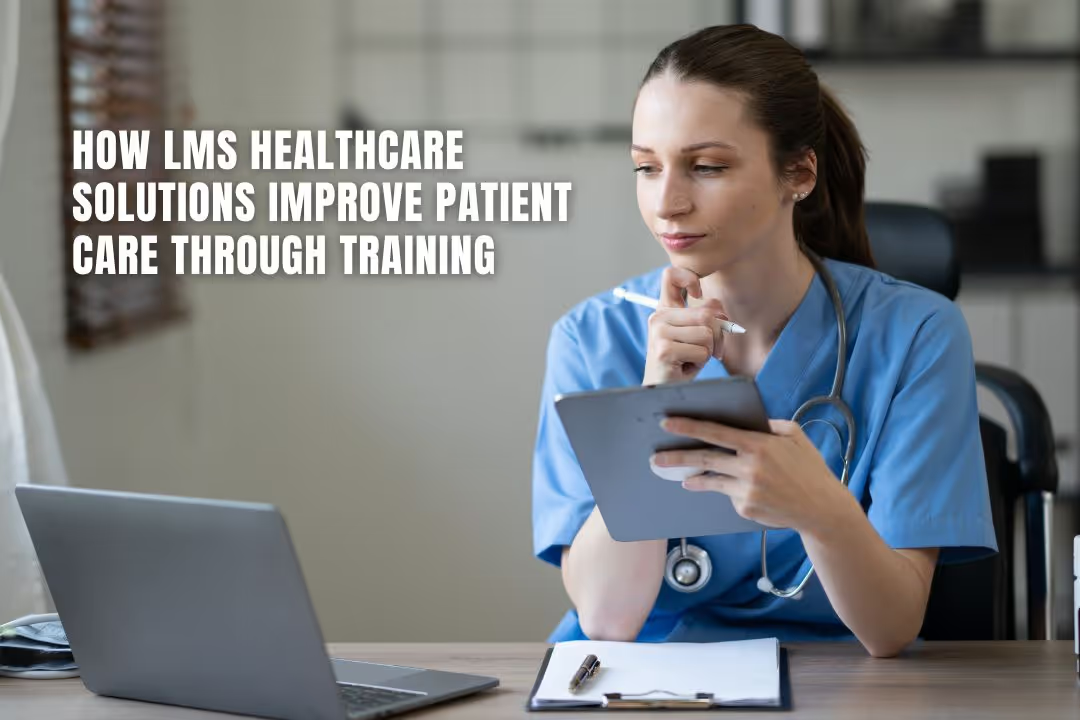
In the changing healthcare landscape, patient well-being remains the top priority. The adoption of Learning Management Systems (LMS) has improved the achievement of this objective. By offering diverse training options, these platforms empower healthcare workers with the expertise and capabilities needed to enhance patient care.
A Learning Management System (LMS) is an online platform used for education and training, providing content in various fields. In the healthcare sector specifically, these platforms support learning for healthcare workers by keeping them informed about industry trends and advancements. The structured training modules offered through these LMS healthcare systems enable professionals to improve their skills and feel more assured when providing patient care.
Medical professionals have the opportunity to enhance their skills through online courses that provide flexibility in learning schedules and interactive modules. These self-paced learning experiences cover various aspects of healthcare practice, ranging from clinical procedures to effective patient interactions. It allows professionals to better meet the needs of a diverse patient population.
Ensuring patients' safety is a top priority in healthcare environments. LMS platforms enhance safety through the provision of tailored training modules. These modules cover key areas like preventing infections, handling medications, and responding to emergencies. By equipping healthcare professionals with the essential skills and information, LMS platforms enable healthcare institutions to minimise mistakes and bolster overall safety.
Effective patient care relies on seamless collaboration among healthcare professionals to coordinate treatment plans and improve patient outcomes. Utilising LMS solutions to enhance communication and information sharing among staff members encourages teamwork. Interaction through forums and collaborative projects allows for the exchange of insights and experiences within the team. This cooperative strategy ultimately results in enhanced efficiency and quality in patient care delivery.
A major benefit of using LMS in the healthcare sector is the capability to monitor and track progress effectively. Healthcare institutions can evaluate the success of training initiatives by reviewing information on course completion rates, assessment scores, and skill enhancements. This data-focused method empowers organisations to pinpoint areas that require enhancement and customise training plans as needed.
The field of healthcare is constantly changing due to technological advancements. LMS platforms are essential for assisting healthcare workers in adjusting to new technologies. They provide training on the latest medical devices and software to ensure that professionals stay skilled in using cutting-edge tools. This adjustment is crucial for upholding high standards of patient care.
Utilising LMS solutions in the healthcare sector can result in cost reductions compared to training approaches that demand extensive resources like physical classrooms and printed materials. LMS platforms offer training materials digitally, which reduces the requirement for resources, while online courses help minimise travel costs for employees attending off-site training sessions.
Healthcare professionals must constantly enhance their skills and knowledge to stay competent and provide quality patient care. The availability of learning resources on LMS platforms like webinars and e-books greatly helps with this development. These tools empower staff to keep learning and growing professionally for the benefit of their patients' well-being.
Ensuring compliance is vital for healthcare operations to run smoothly and legally sound. LMS solutions help organisations adhere to regulations and standards through structured training programmes. These tools also streamline record maintenance and reporting processes to guarantee that healthcare entities uphold documentation practices. Compliance with regulations is essential for preventing complications and safeguarding patient well-being.
Learning Management Systems are now essential in the healthcare sector, transforming the methods of providing training. LMS platforms play a vital role in elevating patient care by boosting skills, enhancing safety, encouraging teamwork, and adjusting to progressions. As the healthcare field continues to progress, utilising LMS solutions will remain essential for upholding standards and guaranteeing the welfare of patients. These platforms support healthcare professionals and improve the overall patient experience, establishing them as a valuable asset in striving for excellence in healthcare.